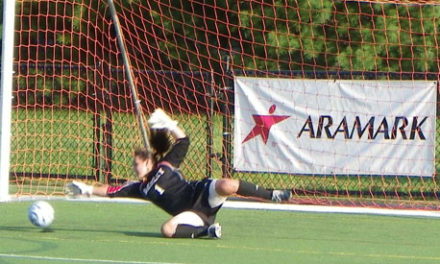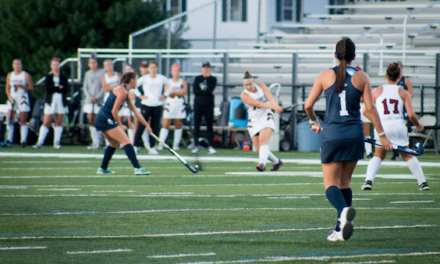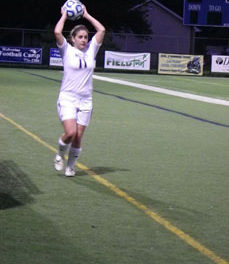By Kelly Morgan
The spring 2010 Intramural Sports semester has begun.
Indoor Soccer is the season’s first sport. Games began Jan. 24 at Wesley West on Mary Street. The games last five weeks, and are played on Sunday and Tuesday nights.
Junior Paul Huber, a student manager, is excited.
“I am most looking forward for indoor soccer!” Huber said. “Fast play and intense competition are always fun.”
Huber holds high expectations for the spring Intramural league.
“This semester, I expect a big turnout for each of Intramural sports,” he said. “We are offering indoor soccer, dodgeball, flag football, ultimate Frisbee and a basketball tournament.â€
Mark MacDonald, a senior, plays Indoor soccer.
“My team name is the Sugar Cookies,” MacDonald said. “We have a lot of good players, so, hopefully we’ll win a title.”
MacDonald likes the competition.
“I think intramural sports at Wesley brings the students together in a competitive way,” he said.
The coordinator for intramural sports, Amanda Kinkade, encourages students to get involved.
“I think it’s important students are getting out, [physically] exercising and exercising leadership and team work roles,” Kinkade said.
Kinkade said there are ten teams for indoor soccer, or about 100 students. She expects an equal number of students for each league this semester.
John Clarke, a senior and student manager, helps the organization advertise.
“I have put in a lot of time and effort to set this league up,” Clarke said. “I was tabling for an entire week trying to get people to sign up to play indoor soccer.”
Tabling is sitting at a reserved table in the College Center Lobby and promoting your organization.
As student manager, Clarke has many responsibilities.
“I am responsible for overseeing the officials and making sure everything goes smoothly every night for indoor soccer,” Clarke said. “I was also in charge of making sure everything was ready for the captains meeting we had. That includes making the schedule, typing up the rosters and making copies of everything we needed for the meeting.”
Two responsibilities for Huber include refereeing the games and keeping track of sportsmanship scores.
At times, problems occur that need to be resolved.
“Being a referee involves taking responsibility for calls or actions that were made,” Huber said. “Certain incidents might occur that cause a disruption in game-play. As a referee and staff member, it is my job to stop play and find a resolution to the problem. Often, players do not hear calls or do not understand rules, so most of these issues are resolved with a quick explanation.”
Clarke ran into the problem of too many teams forfeiting games.
“To try and fix the forfeiting problem, we have implemented the pay-for-play for all of the spring sports,” Clarke said. “The pay-for-play is having a team pay $20 when they hand in their roster. If they forfeit less than two times, they get� $10 back. If they forfeit two or more times, they lose their money.”
Kinkade, has positive expectations for the Pay-for-Play system.
“It allows us to provide more integrity,” she said. “[It] holds teams more accountable so they’re not forfeiting. Teams that are really enthusiastic [about playing] won’t forfeit.”




